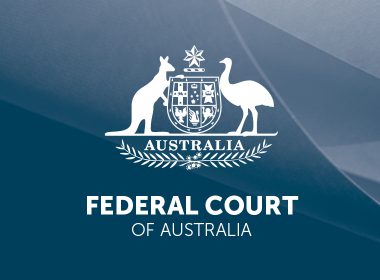Key decisions
- Rumsley v Vegas Enterprises Pty Ltd [2016] FCAFC 84
- Mitsub Pty Limited v McGraw-Hill Financial Inc [2016] FCA 559
- Chen v Migration Agents Registration Authority (No 1) [2016] FCA 649
PRACTICE AND PROCEDURE
Appeal from stay order – whether fair and proper notice of change of argument involving a serious and grave allegation against a person – discussion of obligations in an ex parte applications
In Rumsley v Vegas Enterprises Pty Ltd [2016] FCAFC 84 (13 June 2016) the Full Court (North and Reeves JJ, Siopis J agreeing) set aside a stay order made by the primary judge (Gilmour J) in relation to a debt appropriation order made under s 53 of the Federal Court of Australia Act 1976 (Cth) and the Civil Judgment Enforcement Act 2004 (WA).
The Full Court held that the appellant, a legal practitioner, had not been provided with a reasonable opportunity to respond to allegations that were made for the first time at the stay application hearing before the primary judge and which had not been foreshadowed in submissions. Those allegations were that the appellant had failed to disclose information to the Deputy District Registrar which was material to the grant of the ex parte appropriation order he had sought and obtained (at [2] and [10]). The appellant and his counsel were not put on notice that the alleged material non-disclosure was relied upon as the primary ground for an urgent order staying the order made by the Deputy District Registrar (at [12]). The primary judge, in granting the stay, held (at [13]) that the appellant, particularly as an officer of the Court, was required to make disclosure of certain information to the Deputy District Registrar.
Justices North and Reeves referred (at [20]) to the principles relevant to the obligations imposed on a person to make full and fair disclosure to a court when seeking to have the court make an order ex parte. Their Honours stated (at [21]) that failing to make disclosure of a material fact is tantamount to misleading the Court and, from the perspective of a lawyer, such conduct is contrary to his or her duty of honesty and candour to the Court.
Accordingly North and Reeves JJ considered (at [22]) that the allegation against the appellant on which the stay order was granted by the primary judge was of ‘the most serious and grave character’. They continued: ‘[w]e consider it was of such seriousness and gravity that fairness and justice dictated that [the appellant] should have been given notice of it . . . and given a reasonable opportunity to prepare a response to it’. Their Honours rejected the argument (at [23]) that proper notice of this ground for the stay application was provided as the allegation had been made soon after the hearing began before the primary judge. They also rejected (at [24]) the contention that the appellant had been represented by experienced counsel who did not seek an adjournment and proceeded to make submissions in opposition to the stay application. Justices North and Reeves explained that ‘it is clear from the transcript of the hearing that [the appellant’s] counsel was taken by surprise and said so openly at the beginning of his submissions to the primary Judge. In those circumstances, we fail to see how the capacity of counsel to contend such a surprise situation can justify it being created in the first place’ (at [24]).
Further, the competing imperatives of urgency and fair and proper notice could have both been accommodated, for example, through interim stay orders and short adjournments (at [25]). On the issue of whether there had been a material non-disclosure, it was sufficient that the appellant had suffered the ‘prerequisite “practical injustice”’, referring (at [26]) to Re Minister for Immigration and Multicultural Affairs; Ex parte Hieu Trung Lam (2003) 214 CLR 1 (at [37]-[38] per Gleeson CJ).
Justice Siopis agreed that the appeal should be allowed. He also discussed (at [32]-[41]), without deciding, whether there was a difference in principle between duties of disclosure in ex parte applications made before final judgment and applications by a judgment creditor made in the absence of a judgment creditor for orders in aid of execution upon a final judgment.


